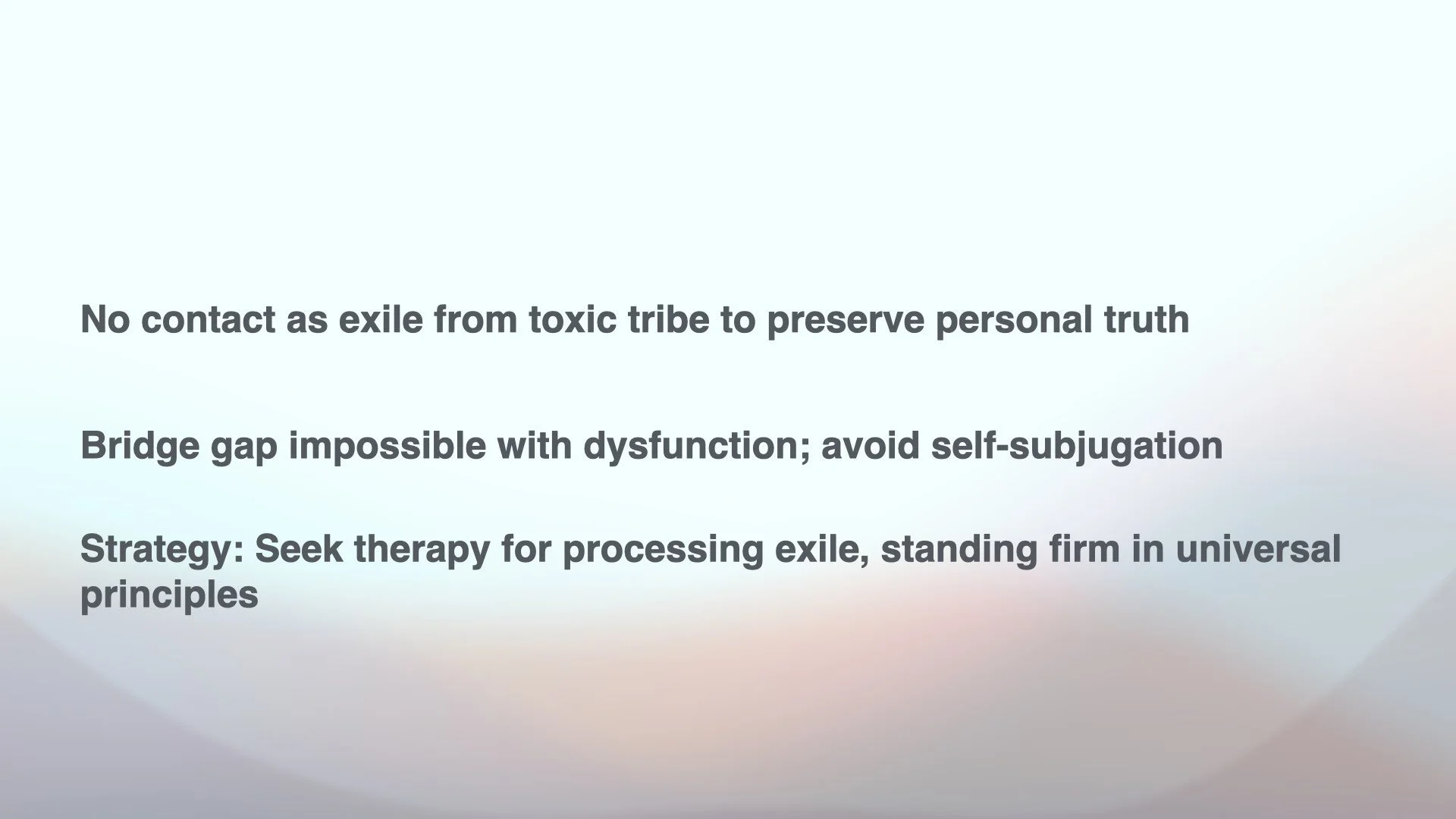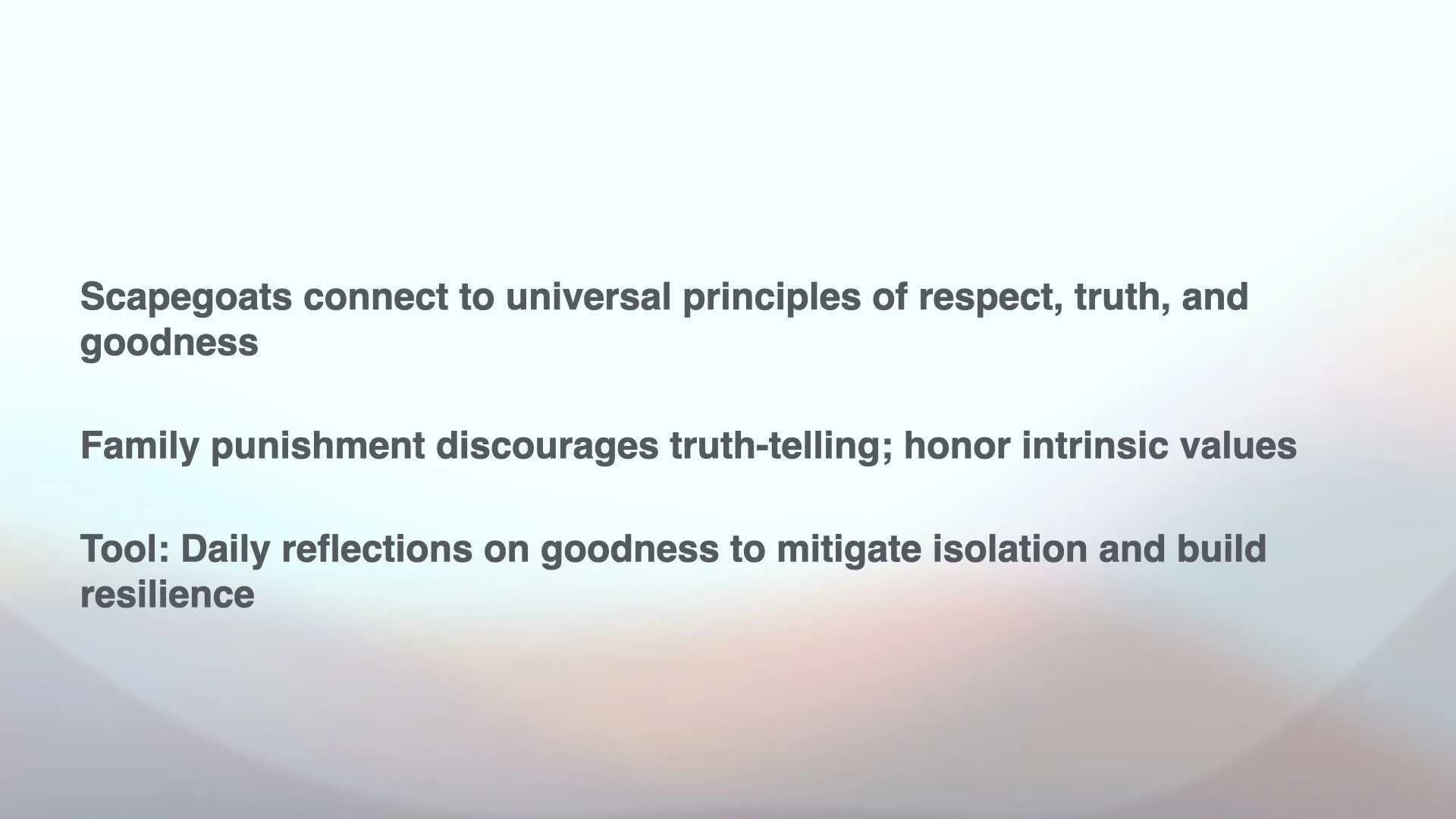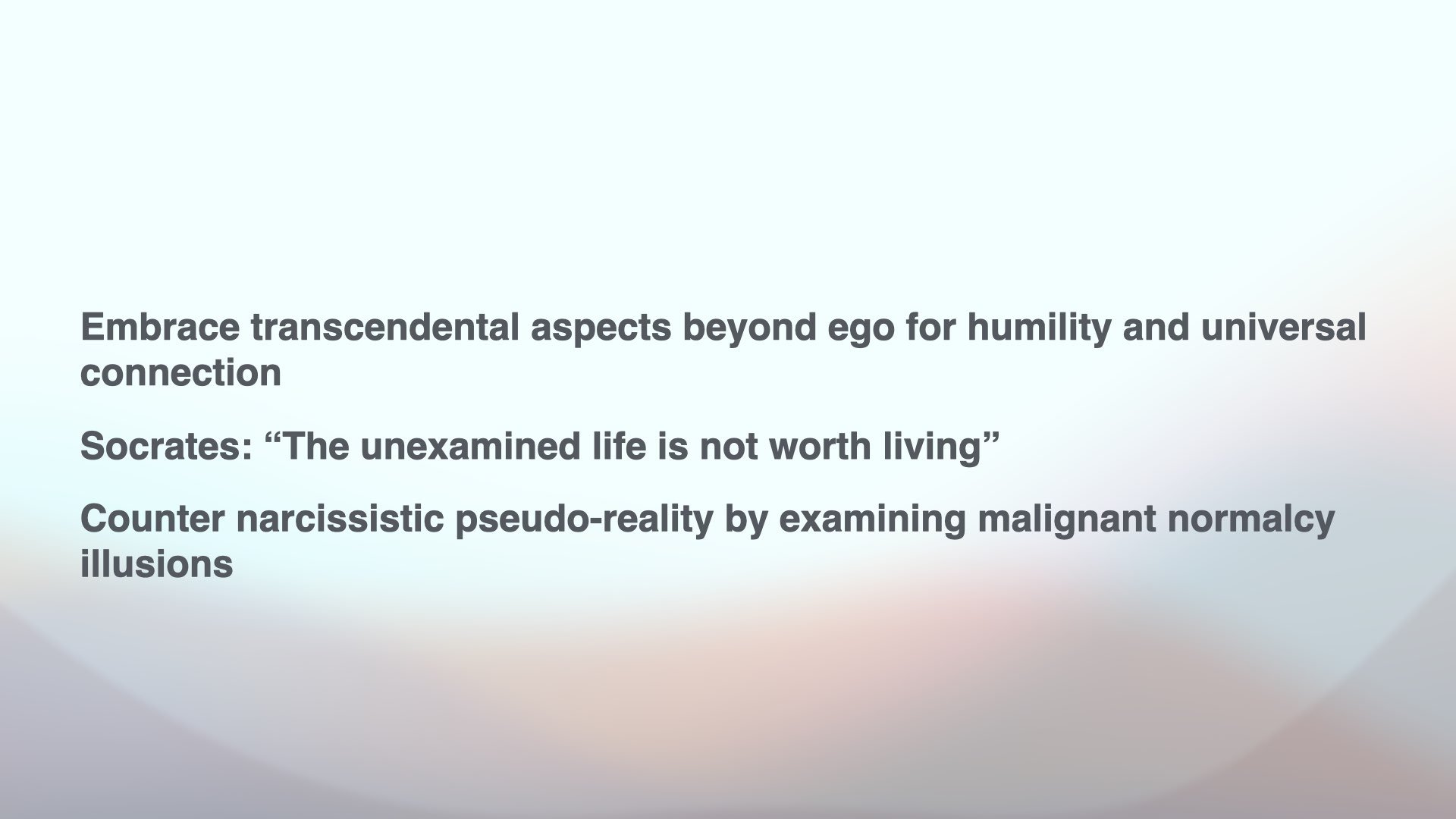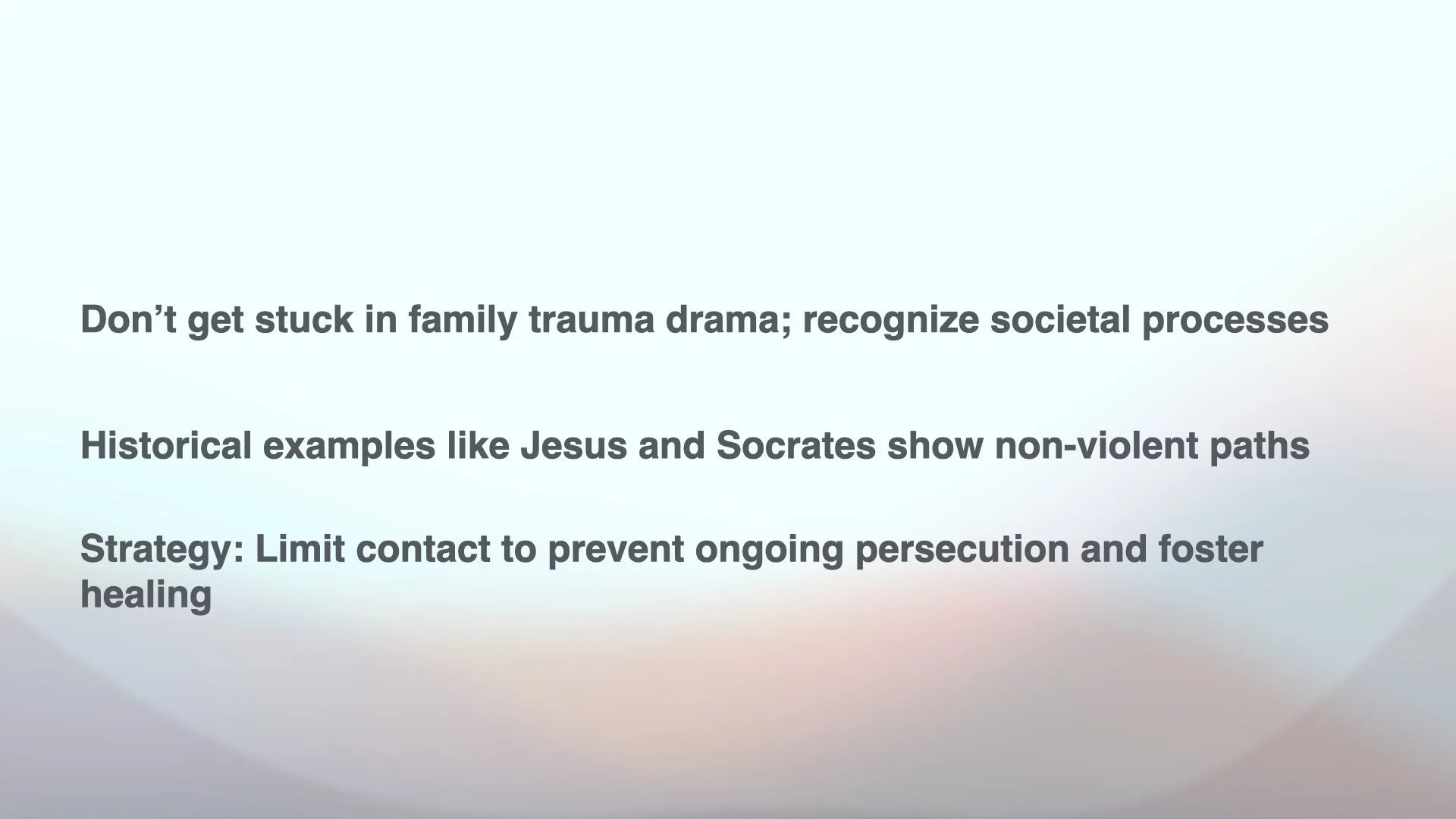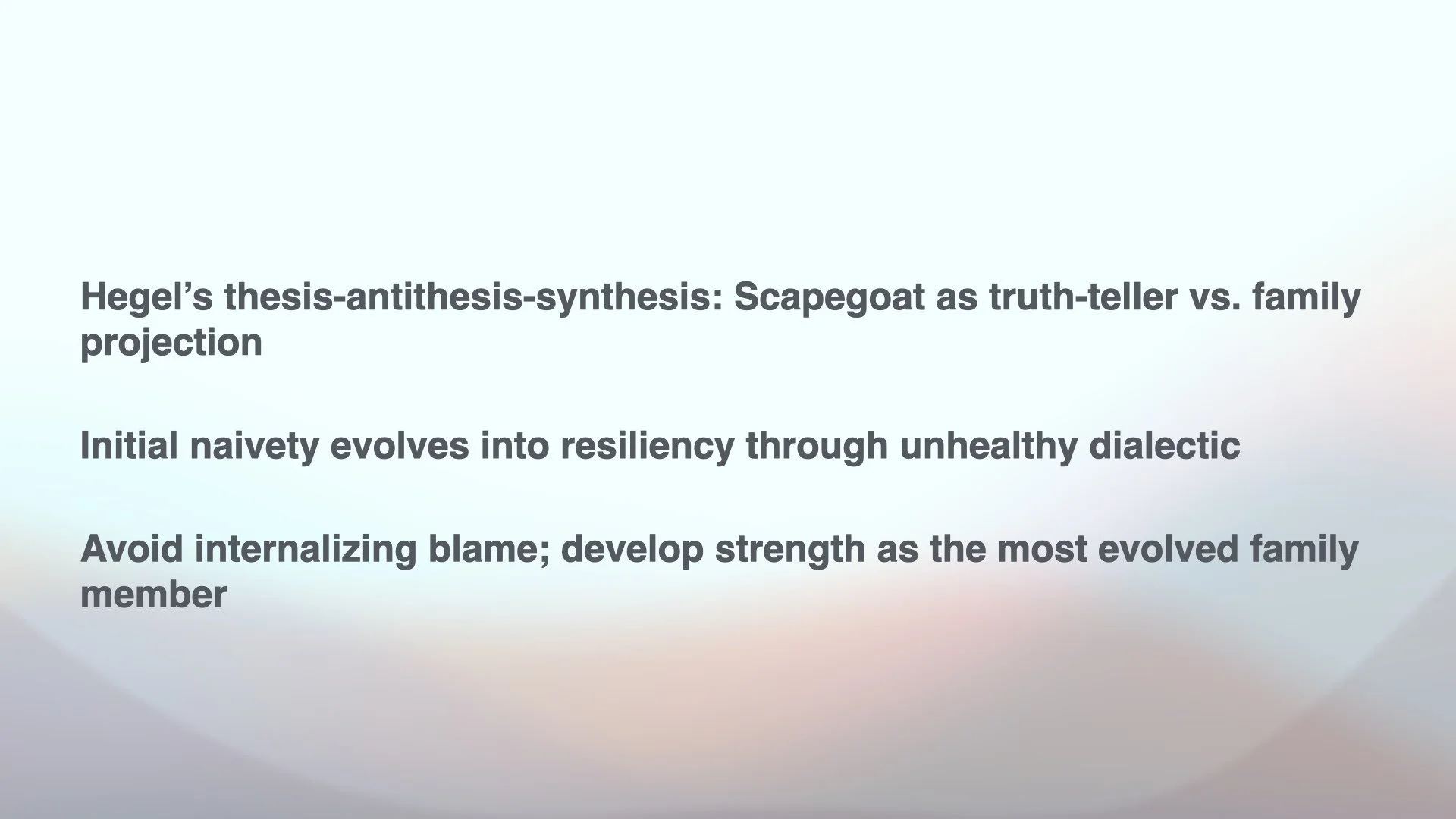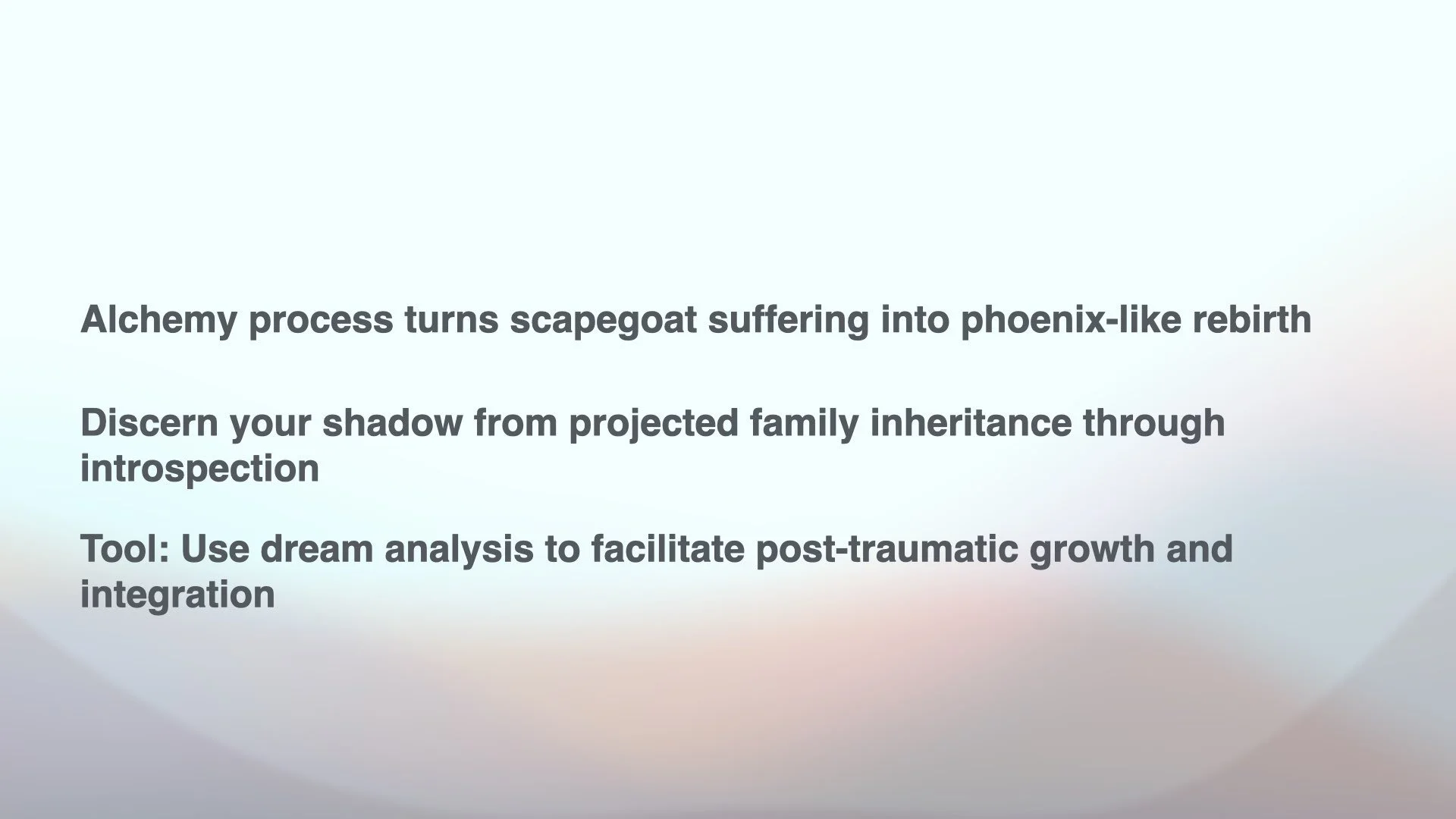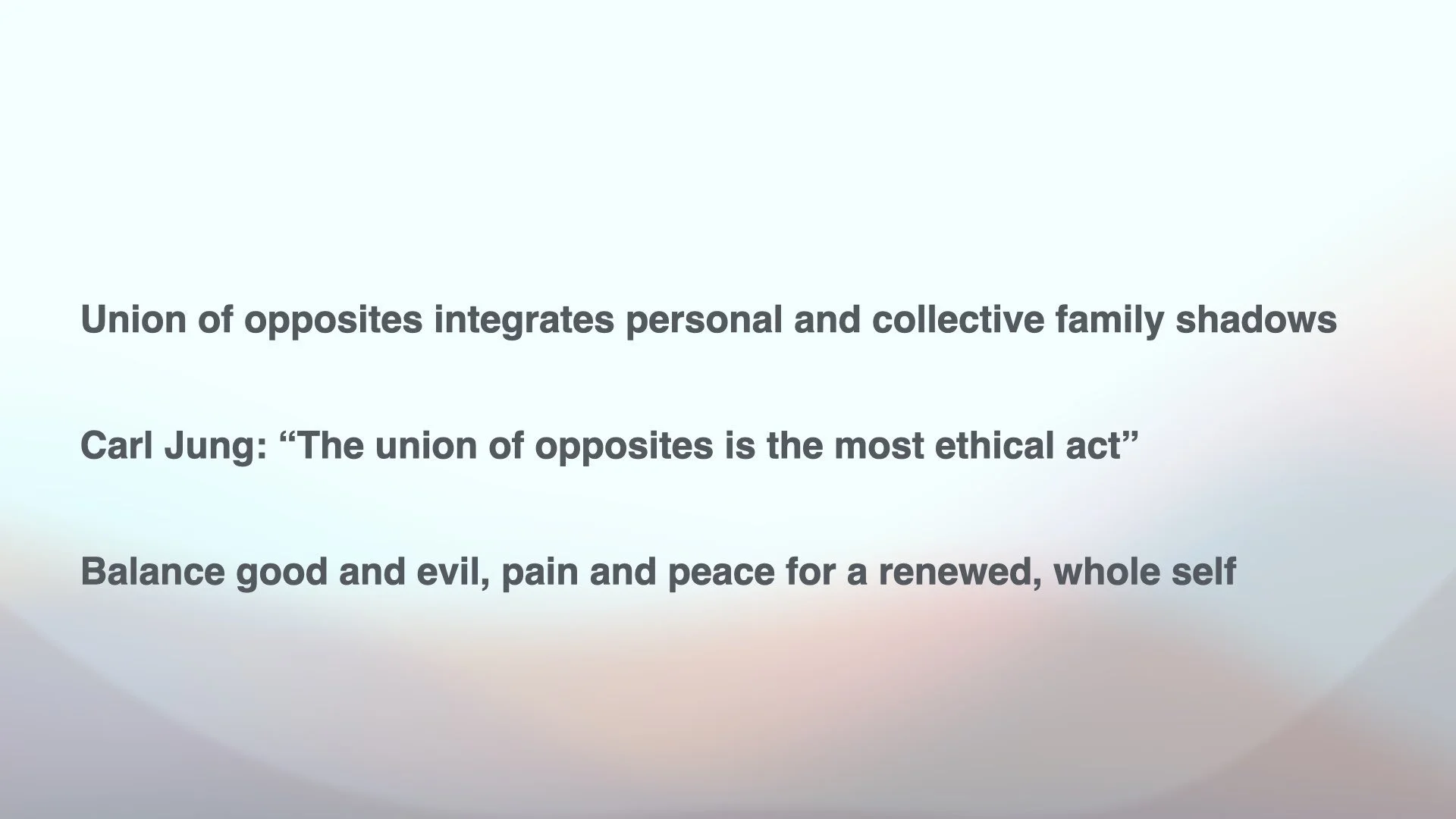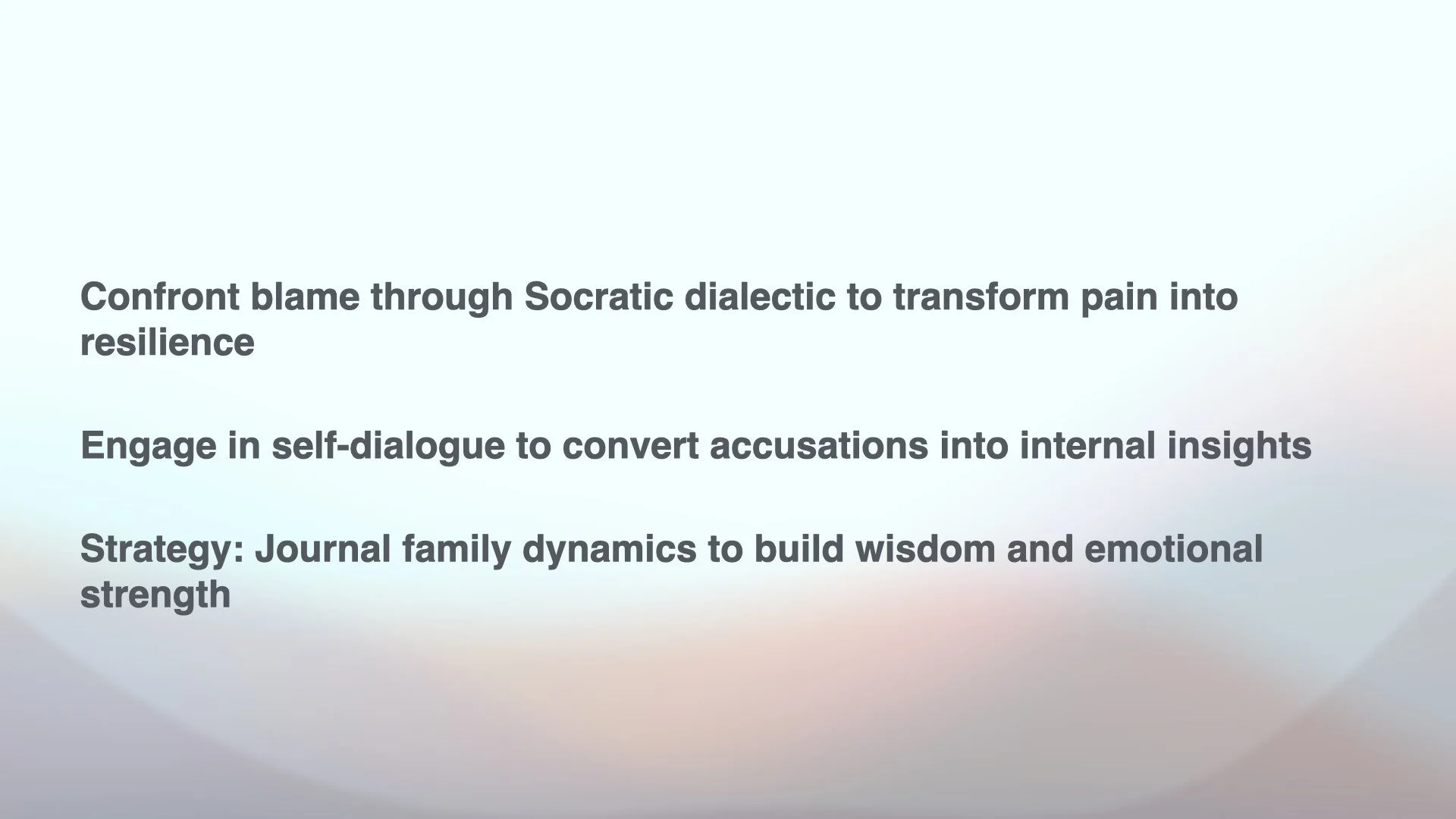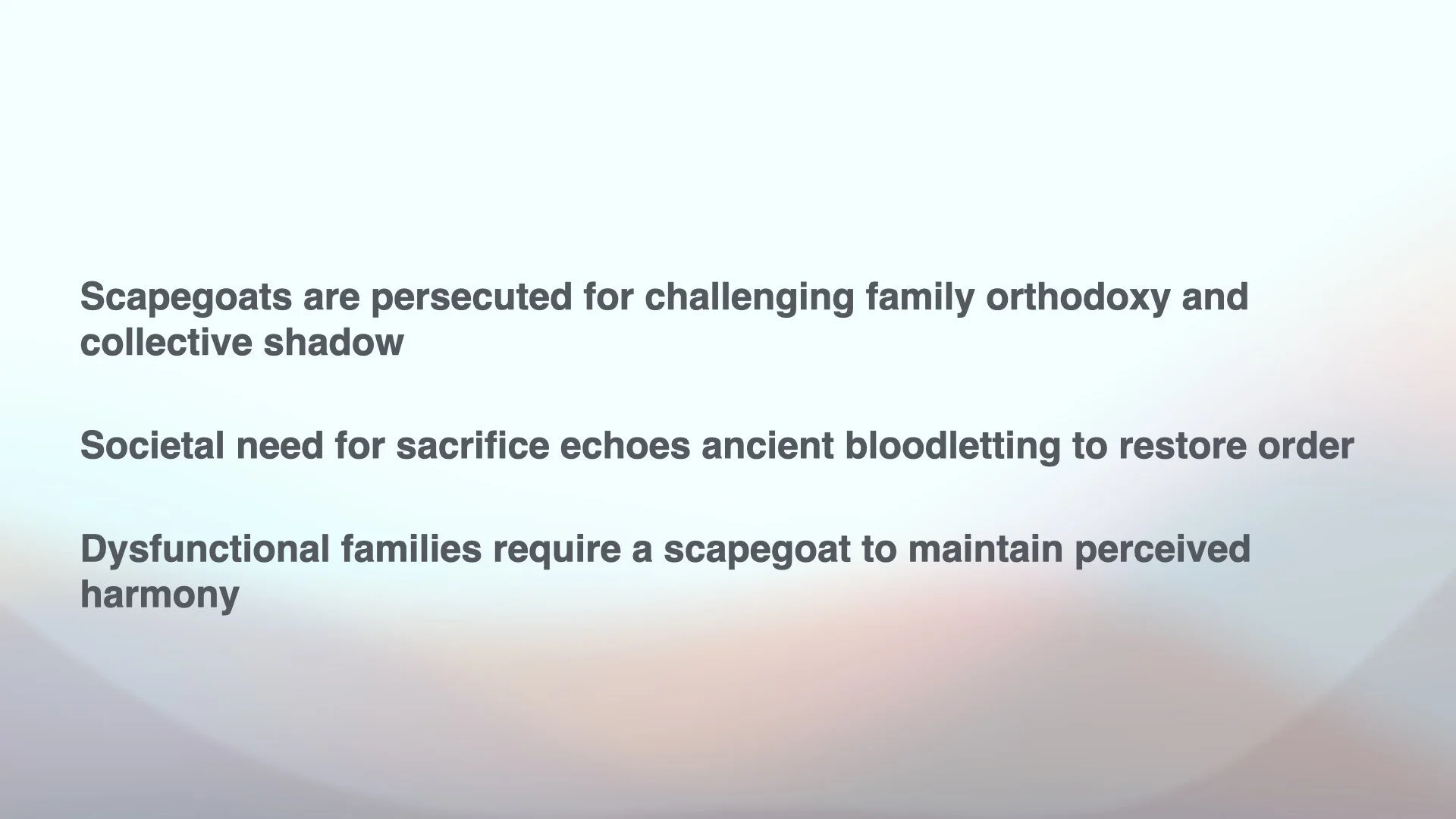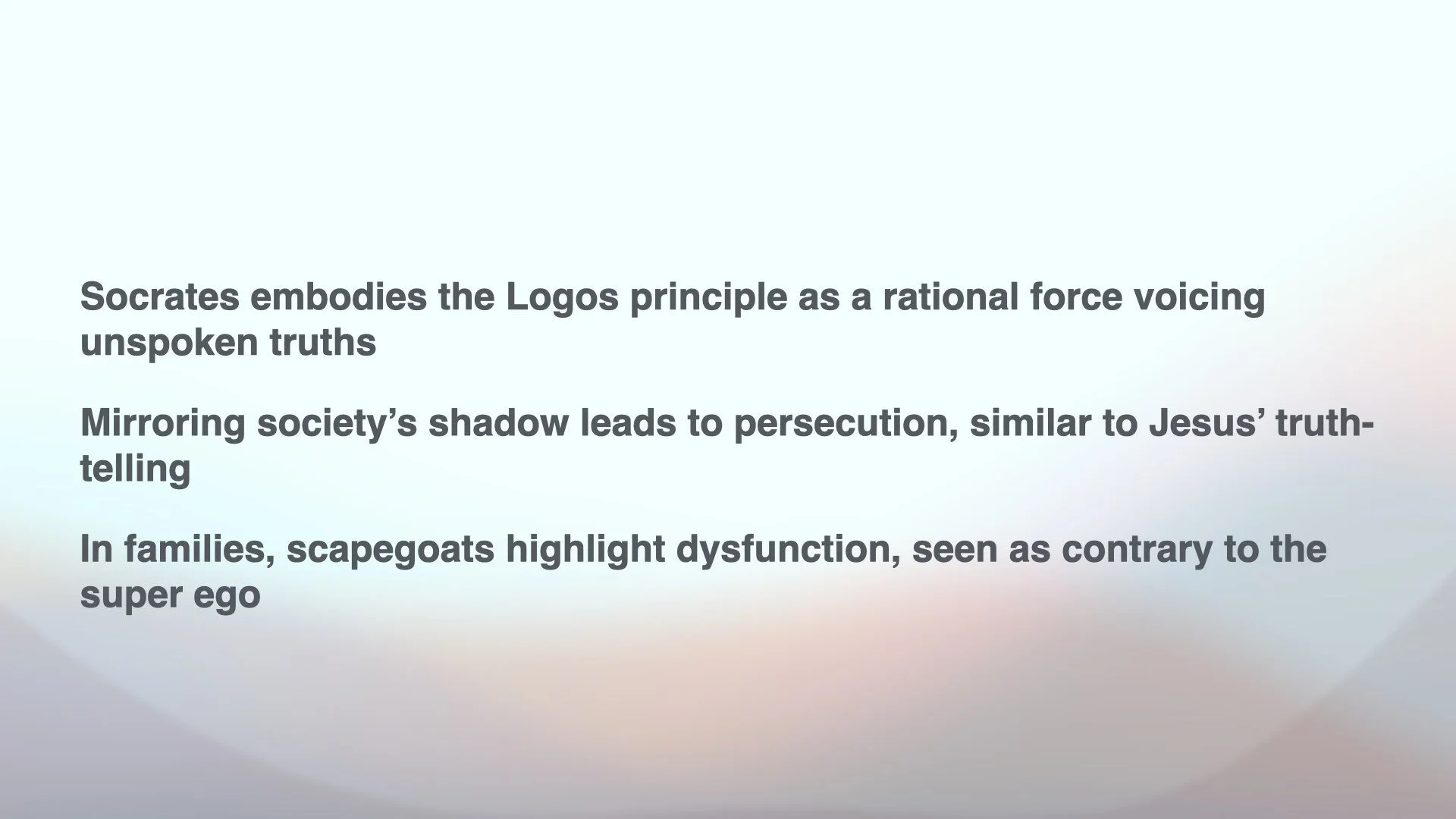The Scapegoat Archetype: Insights from Jesus, Socrates & Carl Jung for Resilience & Growth
As a registered social worker and therapist in Toronto, Ontario, with over 14 years of collective experience in social work and five years as a therapist, I delve into the psychological archetypes of the scapegoat in this blog post. Drawing from my YouTube video on the topic, I take lessons from Jesus and Socrates as ultimate scapegoats who spoke the truth and died for it. This supplements the video by exploring historical context, philosophical interpretations, depth psychology from Carl Jung (learn more about his works here: https://en.wikipedia.org/wiki/Carl\_Jung), and some religious themes, while emphasizing harmony and synthesis in the scapegoating role. If you're seeking insights on scapegoat dynamics in dysfunctional families, narcissistic abuse recovery, shadow integration, or post-traumatic growth, this post oaffers therapeutic practices and personal growth strategies inspired by these figures.
Historical and Philosophical Parallels of Jesus and Socrates as Scapegoats
Both Jesus of Nazareth and Socrates of Athens exemplified the scapegoating mechanism, a societal phenomenon where individuals or groups are unjustly burdened with collective anxieties to restore perceived order. There's a sense that these people need to be eliminated to give rise to order, making them the scapegoats of society. You can see this on a micro level within families, but also in history where societies were more collectivist.
Jesus was active during the first century in Judea under Roman rule. He challenged religious and political authorities through his teachings, which emphasized compassion, equality, and inner transformation. He absorbed the fears and upheaval, becoming the vessel for communal sins or disruption. Socrates, in fifth-century BCE Athens, was convicted of corrupting the youth and impiety, leading to his death by hemlock in 399 BCE. As a philosopher who employed dialectic questioning to expose ignorance and hypocrisy, he disrupted the democratic yet fragile Athenian society recovering from the Peloponnesian War.
Both figures accepted their fates without resistance—Jesus submitted to arrest, and Socrates refused exile. This highlights a deliberate embrace of the scapegoating role. The historical parallels underscore how innovative thinkers often become targets. Their mistreatment reflects broader cultural tensions rather than personal failings. It's interesting that the scapegoat can be both within a family of origin, perhaps as the black sheep, but also reflect the shadow of the collective. Especially in the past, there was more violence, and Jesus and Socrates paid the ultimate sacrifice.
Depth Psychology Insights: Carl Jung and the Shadow
To do a deeper analysis, we can take Carl Jung again. The shadow encompasses the hidden traits, instincts, and traumas that individuals deny and often project onto others. In Jung's interpretation, the Christ figure symbolizes psychology incarnate. The crucifixion represents the ego's dissolution, where conscious identity confronts and dies to the unconscious shadow. The resurrection signifies the rebirth of the integrated self—a unified psyche emerging from the alchemical transformation, akin to turning base lead into gold.
What makes Socrates and Jesus similar is that they both spoke the truth and mirrored the shadow in society. They pointed to what was seen as sacrilegious or contrary to the orthodoxy at the time. You can apply that same understanding to the scapegoat within a family dynamic, where they're pointing out the truth or what is considered sacrilegious within the undifferentiated ego mass or the super-ego of the family. Because of that, they're persecuted and scapegoated.
There's a notion of bloodletting in society—needing some sense of sacrifice, going back to ancient times. But you can understand that psychological aspect still operating within humanity and the family environment. You can point to historical examples of great thinkers and leaders like Socrates and Jesus as the ultimate personification of that dynamic.
Lessons for Personal Growth in Dysfunctional Family Dynamics
In this post, I also touch on lessons for personal growth and understanding the family unit, particularly with regards to dysfunctional families and why they need a scapegoat. The first point is the confrontation of blame as a path to wisdom. Rather than evading scapegoating, emulate Socrates by engaging in dialectic and the Socratic method. This can transform accusations into internal insights, converting pain into psychological resilience. It's through dialoguing this dynamic—understanding what you've been through, maybe going no contact or limiting contact. Obviously, if someone isn't healthy, you can't really have a healthy dialogue. But through introspection, you facilitate growth.
The next point is the union or synthesis of opposites. To take more from Carl Jung, the scapegoat's journey is integrating the shadows—both the personal shadow and the inherited shadow of the collective family—through alchemy. The synthesis of these competing selves, the balance of good and evil, pain and peace, yields a renewed self. So there's a notion like a phoenix. Through the alchemical process, the scapegoat integrates the shadow, leading to a larger synthesis.
If you take philosophy like Hegel, there's a notion of thesis and antithesis. You could consider the scapegoat as a way of being in the world, speaking the truth. Then you have the dysfunctional family, perhaps with narcissistic parents, challenging the scapegoat and projecting their shadow. Even if it's an unhealthy dialectic, it gives rise to—maybe at the beginning, the scapegoat is more naive. Because it's just a child, the shadow is part of the subject in some sense, or the family shadow is very much part of the scapegoat. The scapegoat often will internalize and take the blame of the collective shadow of the family, as that's the basic assigned role.
Through the alchemy process of the union of opposites and through introspection and discerning between what's your shadow and what's the collective shadow of the family, it gives rise to a renewed self. No longer is the scapegoat naive or a people pleaser or taking on what's not their own, but rather they develop a lot of resiliency and strength, as they are often the more developed member of the family. They probably know this from a young age, but through this alchemy process—even though it's a hard journey—it leads to a higher synthesis.
One can get stuck in the drama or trauma that occurred in the family unit. It's not to say that what happened to you was healthy or something one should have to go through, but it's just to know that for whatever reason in society, these processes operate. You can see them in historical examples such as Jesus and Socrates, and in less violent ways now within the psychological unit of the family or society.
Through active imagination and dream analysis, you can take Carl Jung to facilitate evolutionary growth—so post-traumatic growth from this process and experience as the scapegoat. Another point is embracing transcendental aspects beyond ego. In terms of Jesus's incarnation motif, you can recognize the divine or intellectual potential within. Taking both Socrates and Jesus as examples, these elements are larger than the personal identity of the scapegoat. This encourages humility and connection to universal truths, mitigating isolation in modern contexts.
Applying These Lessons to Narcissistic Abuse Recovery
Jesus brought the notion of divine intervention and incarnation, with a transcendental principle manifesting in human form. Interpreted secularly, this represents the ultimate philosophical surrender—the integration of the infinite with the finite, the ideal with the imperfect. It posits that truth and understanding arise from immersing oneself in human vulnerability, transferring potential divinity into lived experience. This is not a call to faith but a model for psychological depth where one confronts existential limitations to achieve wholeness. That's ultimately what psychology and self-development is about—wholeness.
You can look to examples like Jesus and Socrates: submitting to truth, goodness, and beauty, aligned with the divine. Socrates was resisting the gods at the time, yet he was put to death ultimately. Socrates said, "The unexamined life isn't worth living." You grew up in a family unit that is very much unconscious. The narcissist lives their life as a pseudo-reality, like a virtual reality, and so they create the illusion within the family unit that's seen as malignant normalcy. They want to convince you that this is normal.
Growing up, it's likely you thought it was normal to some degree, or you internalized it and perhaps minimized and had defenses against really accepting that your family is dysfunctional or your parents are narcissistic. But through recognizing this process, you understand that you can take lessons from both Jesus and Socrates: speaking the truth, honoring the truth, standing for goodness.
It's interesting because a scapegoat usually has—they're usually in touch with more universal principles. They know what it means to treat people with respect and goodness, and when they don't see that in their family growing up, they represent a sense of standing for truth and goodness. Because of that, the family will punish and scapegoat the scapegoat and find ways to discourage any sort of truth-telling.
That's why it could be the case that you have to leave this process and go no contact. In some sense, it's like being exiled from the tribe or from the family. But you honor these universal principles because you know that they are intrinsic and that they are in themselves good and what is real. Yet if you're in a family where there's no ability to bridge that gap between them and their dysfunction, then you really don't have a choice unless you subjugate and minimize or water yourself down in terms of truth-telling and standing for the goodness in life.
These are just two ultimate examples that you could apply in your life from Jesus and Socrates. How has recognizing the scapegoat archetype in your own experiences influenced your path to healing? Share your thoughts below—your insights could help others on similar journeys.
For deeper support in scapegoat healing and narcissistic abuse recovery, download the Reports for The Scapegoat & Narcissistic Abuse Recovery Course + 45pg Healing Toolkit here: https://blaketherapy.ca/the-ultimate-toolkit. This resource aids in building psychological resilience and family dynamics understanding.
For personalized guidance, schedule a free 15-minute consultation at https://calendly.com/blake-andersons-session-invite/free-15min-consult-video-call-clone




